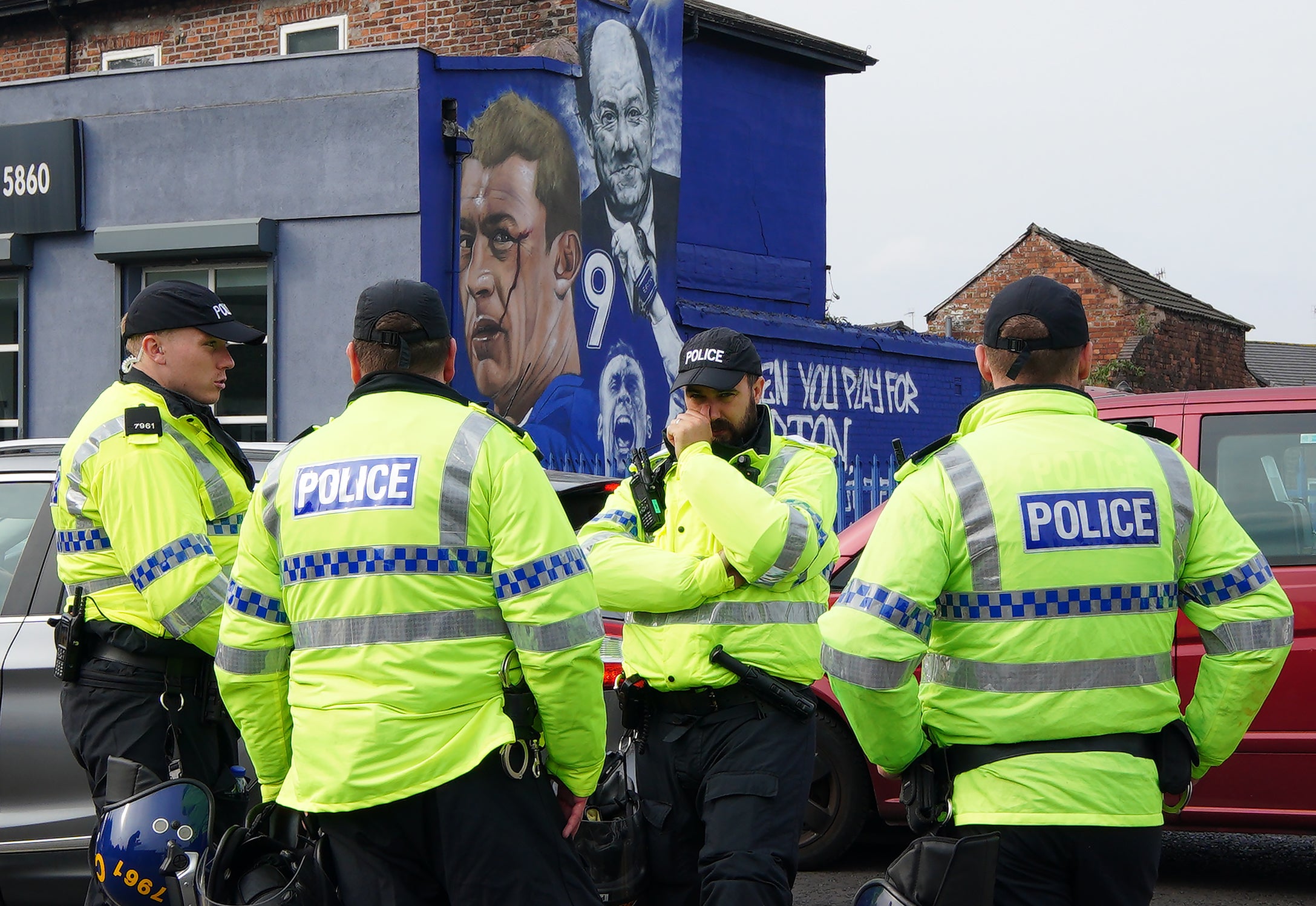Football arrests reach eight-year high in ‘extremely worrying’ new figures
Last season was marred by a series of incidents where players were assaulted by pitch-invading fans.

Your support helps us to tell the story
From reproductive rights to climate change to Big Tech, The Independent is on the ground when the story is developing. Whether it's investigating the financials of Elon Musk's pro-Trump PAC or producing our latest documentary, 'The A Word', which shines a light on the American women fighting for reproductive rights, we know how important it is to parse out the facts from the messaging.
At such a critical moment in US history, we need reporters on the ground. Your donation allows us to keep sending journalists to speak to both sides of the story.
The Independent is trusted by Americans across the entire political spectrum. And unlike many other quality news outlets, we choose not to lock Americans out of our reporting and analysis with paywalls. We believe quality journalism should be available to everyone, paid for by those who can afford it.
Your support makes all the difference.Football arrests reached their highest level for eight years last season while pitch invasions more than doubled compared to pre-pandemic levels, new data from the Home Office shows.
The 2021-22 statistics for matches played in England and Wales make grim reading for the football authorities and law enforcement agencies, and follow a campaign which was marred by players being assaulted by pitch-invading fans.
A custodial sentence was imposed on a Leicester fan who assaulted three Nottingham Forest players during an FA Cup match in February, while a Forest fan was given a 24-week jail term and a 10-year banning order for headbutting Sheffield United player Billy Sharp during a Championship play-off match in May.
There were pitch invasions and confrontations at other end-of-season games too, and the 441 matches where a pitch invasion was recorded represented a 127 per cent increase on the figure for the 2018-19 season, the last full campaign to be played without any Covid-19 restrictions.
The 2,198 football-related arrests recorded last season was the highest figure since 2013-14, while the number of matches where hate crime incidents were reported was up 99 per cent on 2018-19, to 384. Reported incidents of disorder of some kind were recorded at 1,609 matches, equivalent to 53 per cent of the 3,019 regulated games covered by the data.
The number of matches where possession of pyrotechnics was recorded was 729, a 118 per cent increase.
Chief Constable Mark Roberts, the National Police Chiefs’ Council lead for football policing, described the statistics as “extremely worrying” but welcomed the announcement from the Premier League on Wednesday on minimum one-year bans for any supporter who invades the pitch or is caught carrying or setting off pyrotechnics.
He said there needed to be “collective responsibility” from fans to tackle pitch invasions and recognition that what some see as an expression of joy and celebration can actually provide cover to much more serious criminal behaviour.
He told PA: “Once there are several hundred people on the pitch it’s impossible to separate those people who just want to enjoy themselves from those who want to assault players, threaten players and aggravate the opposition fans, and then it gets difficult to manage.
“So there needs to be some collective responsibility here. I think for a number of seasons there’s been a degree of tolerance with end-of-season pitch invasions.
“Unfortunately, what we’ve seen is players are being assaulted. So there’s going to have to be a firm line drawn, because what we’ve done before isn’t working.
“There needs to be an understanding that you can’t go on the pitch and there will be a sanction for it.”
When we do operations on the rail network and when we do operations at grounds, we are consistently finding the presence of cocaine.
Chief Constable Roberts said alcohol was a “perennial driver” of poor behaviour in football and wider society but said cocaine was a rising cause for concern.
“When we do operations on the rail network and when we do operations at grounds, we are consistently finding the presence of cocaine,” he said.
“When we’ve done exercises where we’ve swabbed in toilets in grounds, we know they’re clear before the game, then when we swab afterwards, you’re generally getting a 100 per cent hit rate (for cocaine).
“So clearly it’s a prevalent thing to take at football and we need to clamp down on that. There is ample evidence that cocaine, particularly with alcohol, in a heightened state of emotion which you often get with football, leads to aggressive and violent behaviour.”
Football banning orders have now been extended to cover convictions for online hate crime linked to the sport, while convictions for selling or taking Class A drugs will also come under the banning order regime from October.
Douglas Mackay, the Deputy Chief Crown Prosecutor for the West Midlands and the Crown Prosecution Service’s sports lead prosecutor, said the Police, Crime, Sentencing and Courts Act 2022 this summer would also have an impact on the imposition of banning orders in the future.
He told PA: “Before the end of June, a court had to be satisfied that a banning order would prevent violence or disorder. So there was, in effect, a test for the prosecution and police to overcome.
“The test post-29th of June is that the courts will impose a banning order unless it’s unjust in all the circumstances to do so. So the emphasis is slightly more on the defendant to show why it’s unjust to impose it, and I think it’s reasonable to expect a rise in banning orders as a result of that change.”